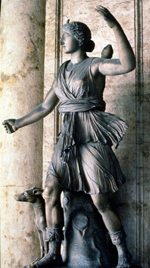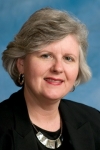This multi-media exhibition explores religious images of women in art from antiquity to the present. Artworks represent the Mediterranean, western Europe, Americas, Africa and Asia. Diane Apostolos-Cappadona, professor of religious art and cultural history at the Center for Muslim-Christian Understanding at Georgetown University, will give the keynote address. A wide range of media, including bronze, stone, wood, and terracotta sculpture, painting and textiles, will be showcased.
The exhibition features an exhibit, academic symposium, keynote speaker and additional related events. [Read more…]

 he Center, religious literacy and the professions.
he Center, religious literacy and the professions.